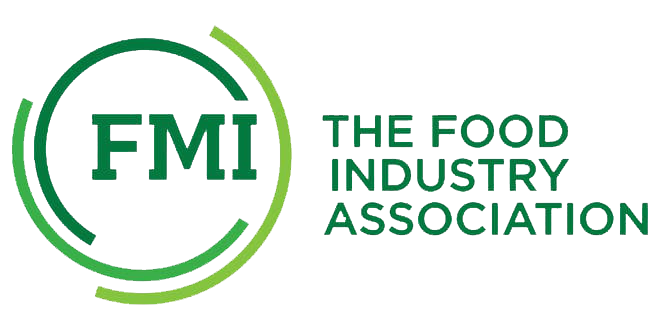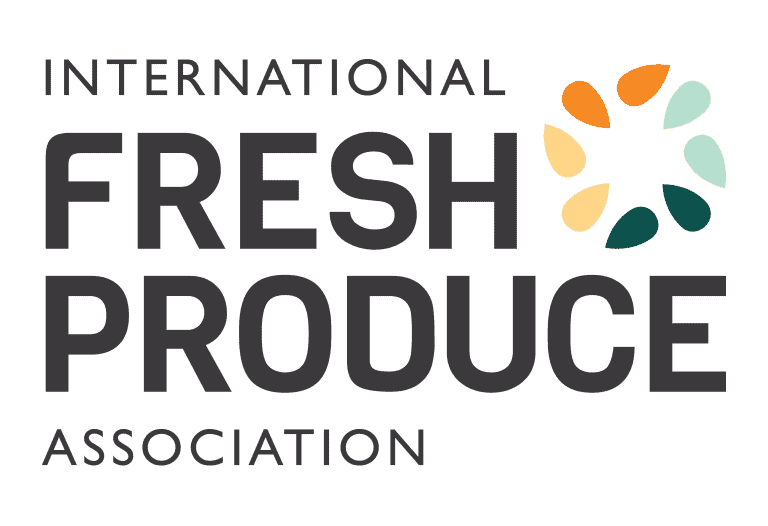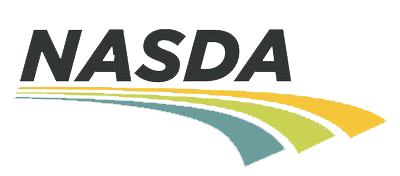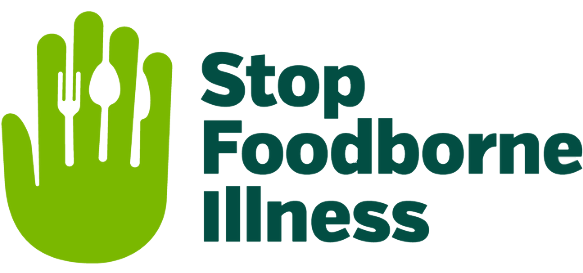Collaborating for Safe and Abundant Produce
Seven national organizations representing growers, processors, buyers, state governments and consumers have come together to convene a new Fresh Produce Coalition.
Convening Organizations







Vision
Provide consumers a safe and abundant supply of fresh produce by catalyzing the systemic change needed for the advancement of produce safety.
Mission
Engage a broad range of produce safety stakeholders to work collaboratively within the produce sector and with federal and state agencies to elevate the societal priority of fresh produce, strengthen the sense of mutual responsibility for produce safety across industry and government, and better support growers in providing consumers with safe and abundant produce.

Background on the Need for Change
The burden of illness associated with E. coli, Salmonella and Listeria in fresh produce is the most significant and disruptive food safety problem still affecting the U.S. food system. Fresh produce is also the one food category experts urge consumers to eat more of as part of healthy diets that can prevent chronic disease. The continuing illness outbreaks associated with fresh produce undercut this “eat more” message by reducing consumer confidence and disrupting markets for growers, retailers, and consumers. Much is at stake for consumers and the food system in making fresh produce as safe as reasonably possible.
In response, government and industry have made significant efforts to strengthen produce safety practices on farms, where contamination typically originates. These include:
- Industry self-regulatory initiatives, such as the Leafy Greens Marketing Agreement of 2007 and other efforts to develop recommended best practices for specific commodities;
- FDA regulations in response to the 2011 Food Safety Modernization Act (FSMA);
- FDA investment in state produce safety programs; and
- Education and technical assistance programs that have generally heightened grower awareness of how their practices can affect the safety of produce.
Yet, despite proactive measures, illnesses and outbreaks continue as:
- FDA’s implementation of FSMA’s regulatory framework and the national integrated produce safety system that FSMA envisioned are incomplete;
- USDA research and technical assistance for farmers falls well short of the need;
- The private audit system provides little incentive for growers to target and prevent the most significant sources of potential risk in their production systems; and
- Overall, the public and private resources being devoted to produce safety are not commensurate with the public health need for a safe and abundant supply of fresh produce.
These shortcomings are systemic obstacles to progress. Their impact is that too many growers lack the clarity they need about the best food safety practices for their operations, and too many lack adequate technical support and economic incentives to implement them. In short, growers have borne the brunt of market disruptions and ratcheted-up produce safety expectations without the financial and technical support they need. Growers, consumers, and the public health deserve better.
Strategy
To fulfill our vision and mission, a new holistic strategy must be implemented across the private sector and by the responsible federal and state agencies. This strategy needs to be holistic in the sense of better integrating the efforts of all parties involved in produce safety within a common strategic framework.
Key elements of the coalition’s holistic strategic framework include:
- Strong focus on development and implementation of science-based risk-reducing best practices – FDA, growers, and other produce safety stakeholders should collaborate on creating and implementing a process for organizations to use in the development of best practices that target and reduce significant risks.
- Expanded technical assistance and other resources to support grower implementation of best practices – FDA, USDA, the states, university extension programs, and the produce industry should collaborate to systematically identify the resource needs and technical support requirements for growers and mobilize extension and other resources to meet them.
- Increased incentives for growers to implement best practices – Buyers and regulators should create incentives and remove obstacles to implementation of best practices and reward implementation of key best practices.
The coalition’s strategy recognizes that produce safety is about more than preventing outbreaks because the great majority of illnesses are not linked to outbreaks. The ultimate success of the coalition will be reduction in the overall burden of illness and increased consumer confidence in the safety of fresh produce.
Initial Coalition Priorities
The strategic change the coalition envisions will take years to fully implement. Key initial steps include:
- Forging a working relationship with FDA – FDA is an essential partner on any new best practices initiative, which needs to be part of a larger strategic shift at FDA toward prevention, collaboration, transparency, and data sharing. FDA’s senior food program leaders are meeting monthly with the convening organizations to discuss ways to collaborate with the agency.
- Working with FDA on a new process for developing best practices – The coalition has begun discussions with FDA on a collaborative process for the development of best practices. The goal is a process that instills confidence in growers, processors, buyers, academicians, consumers, and governments by being science- and risk-based and transparent and inclusive of a cross section of experts representing diverse interests and perspectives.
- Making the case and developing a strategy to increase public investment in produce safety – The coalition will work with the broadest possible range of public and private stakeholders to promote the need for and seek greater public investment in produce safety to reduce illness and foster greater consumption.
Longer-Term Priorities
Many of the priorities below are already being addressed by various groups to which the coalition may lend collaborative support and focus after the initial priorities are addressed.
Examples include:
- FDA-industry data sharing and transparency. This is crucial to collaboration on best practices, as well as development of prevention strategies and efficient outbreak response.
- State funding. States are on the frontline of both technical assistance and inspection oversight, but their current funding is far short of the need.
- Workforce development. The shortage of trained people to work on produce safety in the private sector, regulatory agencies, extension services, and academia is limiting progress on produce safety.
- Research funding, coordination, and transmission. Government and academic research initiatives are conducting important research but their effectiveness is hampered by limited resources and insufficient means to deliver and translate research for practical impact on the farm.
- Extension funding. Extension agents are the most trusted and effective conveyors of new information and technical assistance on best practices, but the USDA extension program has shrunk over the years and is now far short of the need.
- Harmonization of buyer best practice specifications. Conflicting buyer specifications inflict unfunded costs on growers and uncertainty about the scientific basis for any buyer specification.
- Application of One Health principles. The adjacency of food animals and presence of wildlife in growing areas is widely recognized as a significant risk factor requiring One Health solutions that go beyond what regulation can require and can be embraced by both growers and animal producers.
- Safety of imported produce. The same best practices and verification tools needed for U.S. production should be applied equally to the large percentage of fresh produce consumed in the U.S. that is imported.
- Private audit reform. Growers must undergo multiple, inconsistent, checklist audits that are focused largely on grower paperwork and provide little or no assurance that best practices addressing significant risks are being implemented.
Coalition Operating Principles
- The convening organizations believe that systemic change and increased funding are more likely if supported by a broad and inclusive coalition of stakeholders who are aligned on common goals.
- To be fully successful, the coalition must include organizations that represent growers of all sizes and that reflect the diversity of crops, regions, and produce safety challenges.
- The coalition will also seek flexible ways to collaborate on specific topics with any produce safety stakeholder group that shares the coalition’s goals, whether or not a member of the coalition.
- The convening organizations will serve as a steering committee for the coalition and will set priorities and collaborate on the basis of consensus and in consultation with other coalition members and interested stakeholder groups.
Each coalition organization will continue to work on produce safety in their own ways in parallel to their work with the coalition.
Reagan-Udall Foundation
“The Reagan-Udall Foundation embodies FDA’s vision of collaborative innovation to address regulatory science challenges of the 21st century and assist in the creation of new, applied scientific knowledge, tools, standards, and approaches the FDA needs to evaluate products more effectively, predictably, and efficiently, and thereby enhance the FDA’s ability to protect and promote the health of the American public. The Foundation serves as a crucial conduit between FDA and the public, providing a means for FDA to interact directly with stakeholders, including industry and consumers. The Foundation does not participate in regulatory decision-making or offer advice to FDA on policy matters.”
To accurately address key priority areas, the Foundation is soliciting perspectives, interest and volunteers via a short questionnaire.
Have questions on the Fresh Produce Coalition?
Contact us today.

Featuring Karen Ross
Secretary of the California Department of Food and Agriculture
KAREN ROSS was appointed Secretary of the California Department of Food and Agriculture on January 9, 2019, by Governor Gavin Newsom.
In re-appointing Secretary Ross, Governor Newsom cited her unmatched leadership experience in agricultural issues nationally, internationally and in California, in areas including environmental stewardship, climate change adaptation and trade.
Secretary Ross was initially appointed by Governor Edmund G. Brown Jr. in 2011.
Upcoming Events
Explore all upcoming events here.
Explore GreenLink®: Core Features and Live Demo Webinar
Date: August 27, 2024
Time: 9:00 AM PT
Location: Virtual
Management Strategies for Food Safety
Date: September 12, 2024
Time: 10:00 AM PT
Location: Salinas, CA.
Sampling and Testing Integrity Workshop
Date: September 17, 2024
Time: 9:00 AM PT
Location: Salinas, CA
Copyright © 2024

Jason Resnick joined Western Growers in 2003 and now serves as Senior Vice President and General Counsel. His responsibilities include overseeing the organization’s legal department, trade practices department, H-2A Services division, and corporate governance as Western Growers’ corporate secretary. Jason provides advice and counsel on various legal, business and policy matters. Jason has primary staff liaison responsibility over the Western Growers Board of Directors, and the WG Executive and Labor Committees.
Click here for Jason Resnick's full biography.


